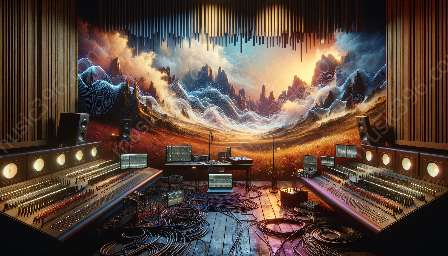Experimental music is a genre known for pushing boundaries and challenging traditional notions of music. As a result, the protection of artistic integrity and intellectual property rights becomes crucial in maintaining the innovative nature of experimental music works. In this context, moral rights play a significant role in safeguarding the authenticity and creative vision of experimental music creators.
The Intersection of Moral Rights and Intellectual Properties in Experimental Music
Intellectual properties in experimental music encompass various forms of rights, including copyright, neighboring rights, and moral rights. Moral rights, in particular, are essential in preserving the integrity of the creative work and are enshrined in international treaties such as the Berne Convention.
Moral rights consist of the right of attribution, the right to integrity, and the right of disclosure. The right of attribution ensures that creators are credited for their work, while the right to integrity protects against unauthorized alterations or distortions of the original work. The right of disclosure allows creators to control the timing of the release or exhibition of their work, thereby maintaining control over its public presentation.
Challenges in Protecting Experimental Music Works
Experimental music often blurs the lines between different art forms, incorporating visual and conceptual elements into the overall experience. This interdisciplinary approach presents unique challenges in protecting experimental music works, as traditional intellectual property laws may not fully address the complexities of these creations.
Furthermore, the transient and dynamic nature of experimental music performances, which may involve improvisation and audience interaction, adds another layer of complexity to the preservation of artistic integrity and intellectual property rights.
Role of Moral Rights in Preserving Creative Vision
Moral rights serve as a critical tool for experimental music creators to maintain control over their works, ensuring that their original artistic vision remains intact. This is particularly important in a genre where innovation and experimentation are core principles, and where the boundary between the composer, performer, and audience can be fluid and ambiguous.
By upholding the right to integrity, creators can object to any modifications or distortions of their works that could compromise their artistic intent. This protection extends to live performances, recordings, and any other forms of expression associated with experimental music.
Experimental & Industrial Music: Navigating the Intersection of Art and Commerce
Experimental and industrial music often exist at the fringes of mainstream commercial markets, leading to questions about the monetization and commercialization of these artistic endeavors. As creators navigate the intersection of art and commerce, moral rights act as a safeguard against exploitation and unauthorized commercial use of their work.
Whether through the licensing of music for unconventional purposes or the incorporation of experimental elements into commercial projects, moral rights grant creators the authority to preserve the authenticity and integrity of their music within the commercial landscape.
Conclusion
In the realm of experimental music, where innovation and boundary-pushing are fundamental, the role of moral rights in protecting the integrity of works cannot be overstated. By upholding the rights of attribution, integrity, and disclosure, creators can maintain control over their artistic vision and preserve the authenticity of their experimental music works amidst the evolving landscape of intellectual properties and rights in the music industry.































